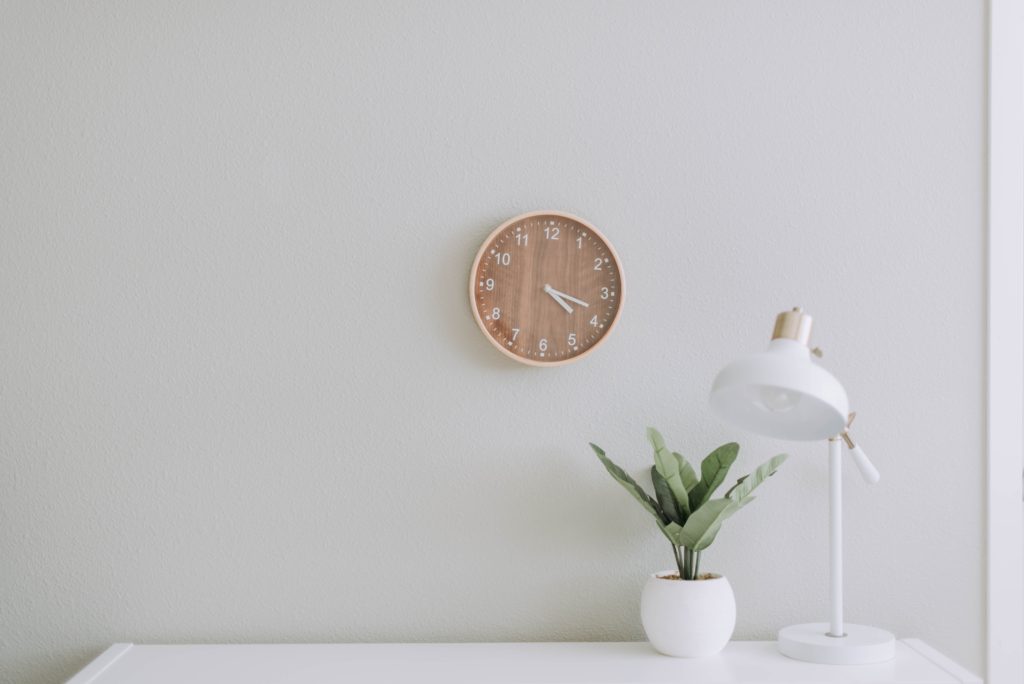Many writers put the pro in procrastination. But is that always a bad thing?

Procrastination for Writers
Procrastination and I are old friends. My house is never so clean as when I have other things I really should be doing.
Phone calls to make? Suddenly I’m organizing the house and clearing out old stuff I haven’t looked at in years.
Have big important life decisions to think about? Instead maybe I’d better wash the dishes, schedule my dentist appointment, and take out the compost.
Yet I’m also really passionate about setting goals. And I’ve found that the best way to actually accomplish results is to create work habits and stick to them (no matter how many other things I think I should be doing instead).
So what gives?
Being all gung-ho about goals and my writing schedule has helped me accomplish far more writing than I ever thought possible.
But life doesn’t always fit into schedules.
Sometimes our writing time gets interrupted. The season of life is just crazy busy. (Hello, holidays!) Sometimes our writing is stuck or our thoughts are so chaotic it can be painful to sit still.
What then?
I think part of self care is knowing when to let the schedule go.

Yes we need goals. But we need to extend grace to ourselves and not feel guilt if we miss our afternoon writing time.
Sometimes we need to just let ourselves procrastinate.
3 Positives of Procrastination for Writers
Because I like lists, here are some ways we can find value in our procrastination:
1- Idea Generating
Sometimes we just need to think through creative issues with the pressure off.
As Agatha Christie said, “The best time for planning a book is while you’re doing the dishes.” We can have the best of ideas while active and moving and doing something else.
2- Productivity Booster
Being productive in other areas can give us a rush to be productive with our creativity.
Especially if we’re in a slump and feeling discouraged, getting things accomplished (even unrelated tasks!) can give us the motivation to keep working on our writing. It can restore our belief in our own capability.
3- Cleaning as Self Care
Cleaning the space around us can remove stressors and provide a peaceful environment in which to work.
Cleaning is also a way that we can care for ourselves and show ourselves respect.
Being in a messy space can add stress to our lives even if we don’t realize it. Taking time to clean- even simple things like making our bed or doing the dishes- can help us feel better about ourselves and our work. It helps us return to our writing in a more settled and positive frame of mind.

Important note: The procrastination can’t last forever.
Having a schedule and solid commitment to our writing is still valid and critical.
But when we have that commitment to our work, it’s okay to breath. It’s okay to rest. It’s okay to take a break and return tomorrow.
Rest is vital for creating a sustainable writing life. Giving ourselves margin room is important.
This is by no means a call to blow off your writing time and throw your schedule out the window.
Everyone’s writing patterns will look different. And that’s awesome! I think it’s beautiful that everyone has different ways of approaching life and, by extension, their writing.
It’s just a matter of honestly evaluating our own habits and what works for us and making sure we’re taking care of ourselves in the midst of that.
For me that means sometimes putting off my writing time to do the dishes and not feeling guilty about that.
And when the dishes are done, it’s time to get back to work.
For further reading on struggling to write and what to do about it, check out The War of Art: Break Through the Blocks and Win Your Inner Creative Battles by Steven Pressfield. It’s listed on my resources page ’cause every writer should read it at least once.
What about you? Do you have any interesting procrastination habits? Do you have any favorite ways to keep focused on your writing when feeling distracted?




